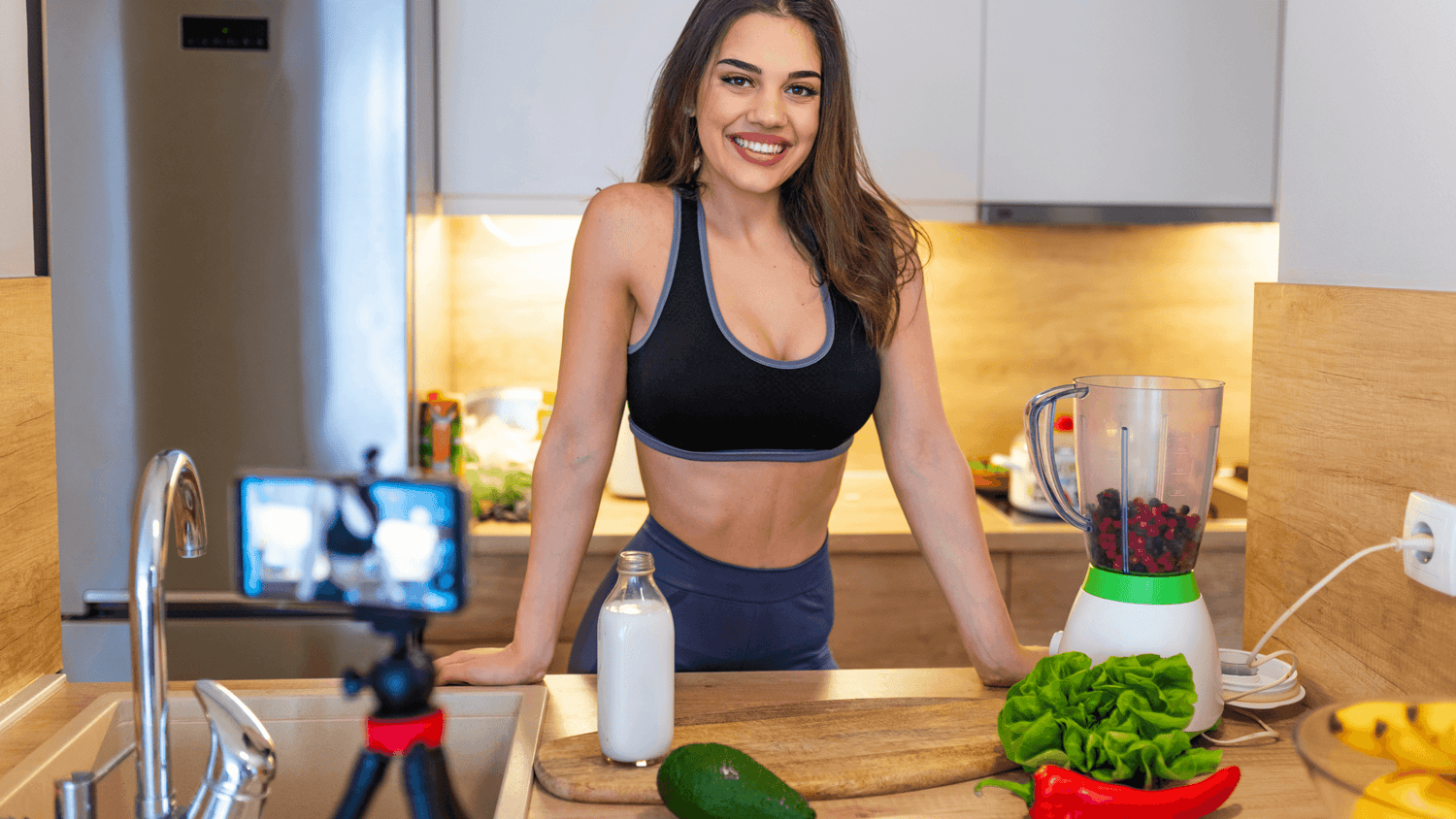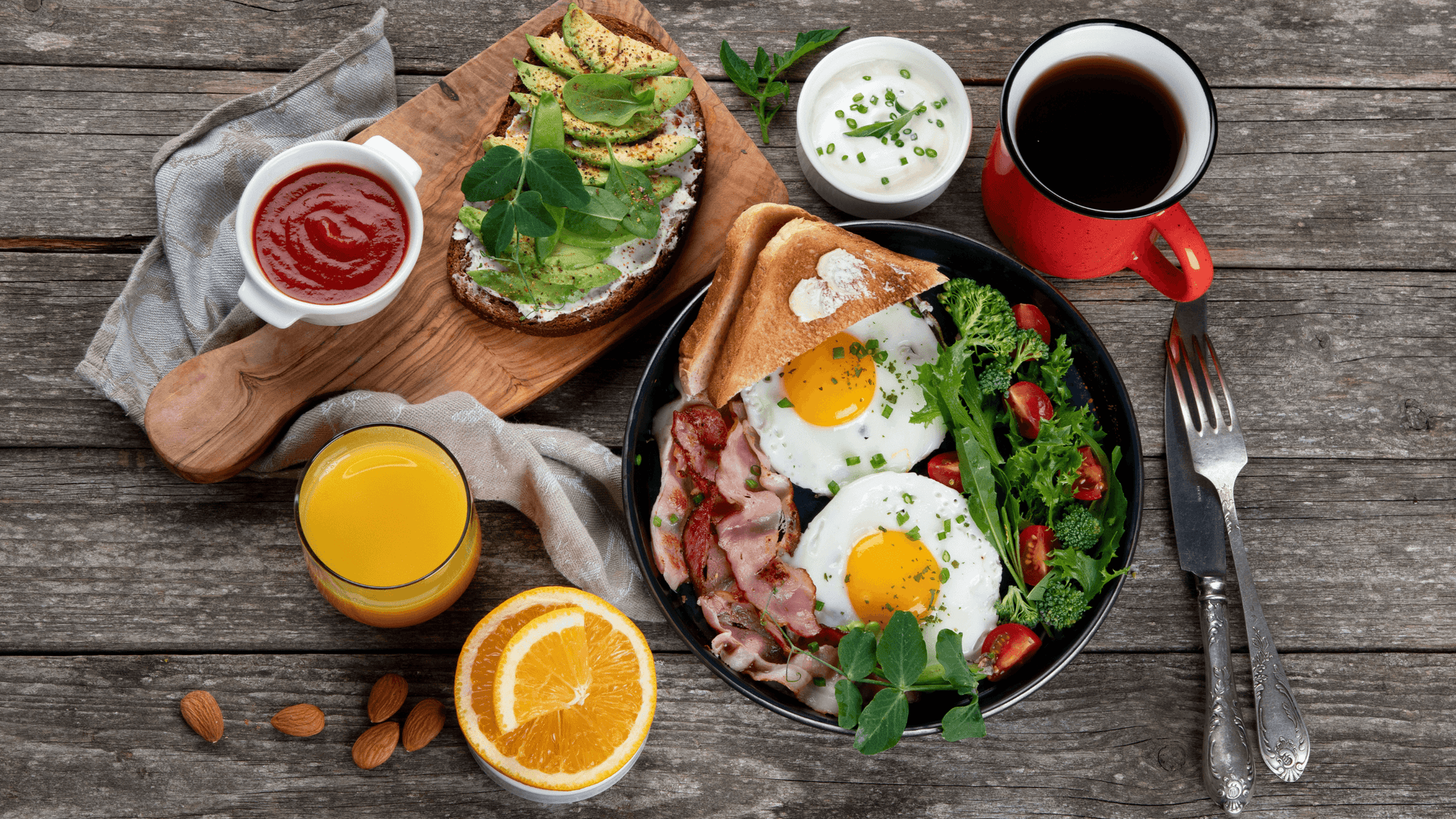The autumn season is coming, which is very perfect for fitness activities. Climbing, jogging, cycling, ball games and so on can bring a good exercise effect. But the question of how to eat properly before and after exercise is difficult for people during workout. You may be thinking about how to change your diet to best support your training regime.
In this article, we will take you through what you need to know about pre-workout diets. This will help you to better fuel yourself for maximum athletic performance during your workout.

Should You Eat Before Exercising?
Firstly, it is important to note that glycogen is the first fuel used by our bodies during exercise, so eating before exercise is crucial to ensure that we have sufficient glycogen reserves. If our glycogen stores are inadequate, this may result in hypoglycaemia, dizziness and other exercise-related symptoms, which can impede the effectiveness of our workout and even have an impact on our overall physical health. Therefore, we must consider our physical condition and nutritional status before exercising to decide if we should eat beforehand.
If you exercise for two hours after breakfast while our body still has enough glycogen, then you do not need to purposely eat. However, if you already feel hungry before exercising, or if you have not eaten anything since last night and skipped breakfast, exercising at this time can affect your health.
But usually, it's a good idea to eat a bit before you exercise to improve your workout and protect your muscles. To raise your basal metabolic rate and have a leaner, healthier body in the long term, it's crucial to maintain your muscle mass. This is more effective than dieting and weight loss, and it also makes you less likely to regain weight. There are various ways to energise yourself before exercising. Depending on the type of exercise, more food should be eaten to provide the necessary energy. It is also advisable to eat the food earlier to allow enough time for digestion.

How to Eat: Depending on the intensity of the exercise and the time away from the exercise
- Low-intensity exercise lasting more than 60 minutes requires additional supplementation, but be careful not to overdo it.
- Moderate to high intensity exercise lasting 30-60 minutes: 1-2 hours prior to exercise, eat small portions of solid food, or supplement with a beverage within 30 minutes.
- Moderate-intensity exercise lasting more than 60 minutes: 3-4 hours before exercise, you can eat a normal, balanced meal or supplement with a simple solid food and fruit 1-2 hours before exercise; if you eat 30 minutes before exercise, it is also based on the principle of good absorption!
What to Eat: Carbohydrate-based, with a small amount of protein
In order to perform well during exercise, your body needs enough energy. This meal should be similar in size to your typical breakfast portion and not make you feel overly full. However, eating too much can cause discomfort. To avoid this, some nutritionists suggest eating a moderate meal that is easy to digest before exercising.
Carbohydrates
Carbohydrates provide most of the energy you need to exercise. The harder your training, the more carbohydrates you need. To meet your needs, eat high-fiber carbs with every meal. Choose foods like whole grain bread, brown rice, pasta, cereal, and sweet potatoes.

Proteins
Protein is crucial for creating and repairing muscles. Similar to carbohydrates, you should include some protein in every meal. You can consume lean meats, fish, poultry, low-fat dairy, plant-based protein such as beans and nuts, and even eggs.
Fats
Your body burns fat during extended low-to-moderate intensity workouts, so it's advisable to avoid consuming fat before exercising to promote fat loss.
If you exercise for over an hour, have a sports drink to stay hydrated. You can also eat some solid carbohydrates like bananas and cookies to replenish your energy.
What to Eat After Exercising?
After exercise, it's important to consume carbohydrates and protein in addition to water. Choose "high glycemic" carbohydrates like bananas, bread, soy milk or milk, and pair them with an appropriate amount of protein. This will help the body repair damaged cells and replenish energy used during exercise. It's best to replenish your body with these within an hour of exercise during the golden period.
However, it is important to be mindful of overeating and drinking as a means of rewarding yourself, as this behavior can increase stress on the digestive system.

Using Experience as a Guide
Keep in mind that the kind and quantity of food you eat will depend on the duration and intensity of the activity. For instance, running a marathon demands more food energy than walking or jogging a few miles. Avoid adding new foods to your diet before a long sporting event. It's best to review your past experiences and learn how your body digests food.
Each person has their own preferences regarding diet and exercise. Therefore, take note of how you feel after working out and your overall performance. Use your own experiences to guide you in selecting the best diet for both before and after exercising. You might also keep a journal to track your body's response to regular meals and snacks, so you can adjust your diet for optimal performance.



